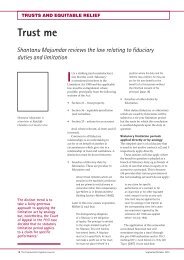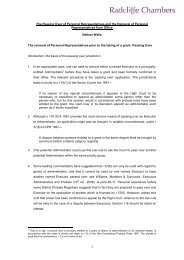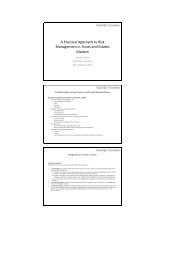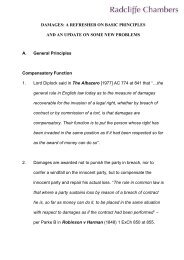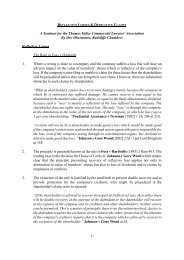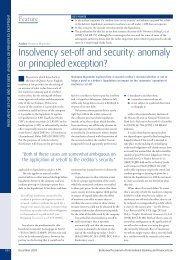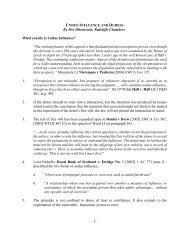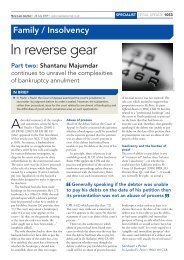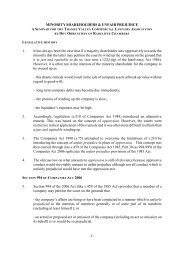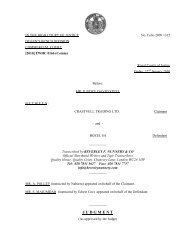Economic Duress - Radcliffe Chambers
Economic Duress - Radcliffe Chambers
Economic Duress - Radcliffe Chambers
You also want an ePaper? Increase the reach of your titles
YUMPU automatically turns print PDFs into web optimized ePapers that Google loves.
the hire rates were reduced. That information was untrue but nevertheless caused the<br />
owners to agree a reduction in the charter rate. The Court found for the owners on the<br />
basis of misrepresentation but accepted the principle that economic duress could<br />
apply.<br />
10. <strong>Economic</strong> duress was established in North Ocean Shipping Co v Hyundai (The<br />
Atlantic Baron) 6 where the builders of a tanker who were being paid in dollars<br />
insisted on an additional 10% payment to compensate them for the devaluation of the<br />
dollar. The owners, who at that time were negotiating a very lucrative contract for the<br />
charter of the tanker, replied to the ship builders that although they were under no<br />
obligation to make additional payments, they would do so "without prejudice" to their<br />
rights. Payments of various instalments were made at the increased rate and without<br />
protest. The Court held that the ship builder’s threat to break the contract without any<br />
legal justification unless the owners increased their payments by 10% did amount to<br />
duress in the form of economic pressure and, accordingly, the agreement was a<br />
voidable contract which the owners could have either affirmed or avoided; that, since<br />
there was no likelihood that the company would resile from the contract to build the<br />
tanker at the time she was due for delivery, the owners, by making the final payments<br />
without protest and also by their delay from before making a claim for the return of<br />
the extra payments, had so conducted themselves as to affirm the contract and,<br />
accordingly, their claim failed. It is apparent from this case that economic duress can<br />
arise even when the perpetrator of the duress knows nothing about the victim’s<br />
susceptibility to being pressed.<br />
11. The mere fact that a party has agreed a contractual variation after the other side has<br />
threatened to break the contract does not necessarily mean that the doctrine of<br />
economic duress will apply, but there have been several threatened breach of contract<br />
cases where a plea of economic duress has succeeded. For example:<br />
(a)<br />
In B&S Contracts and Design Ltd v Victor Green Publications 7 where a firm<br />
6<br />
[1979]QB 705<br />
7<br />
[1984] ICR 419<br />
-4-



